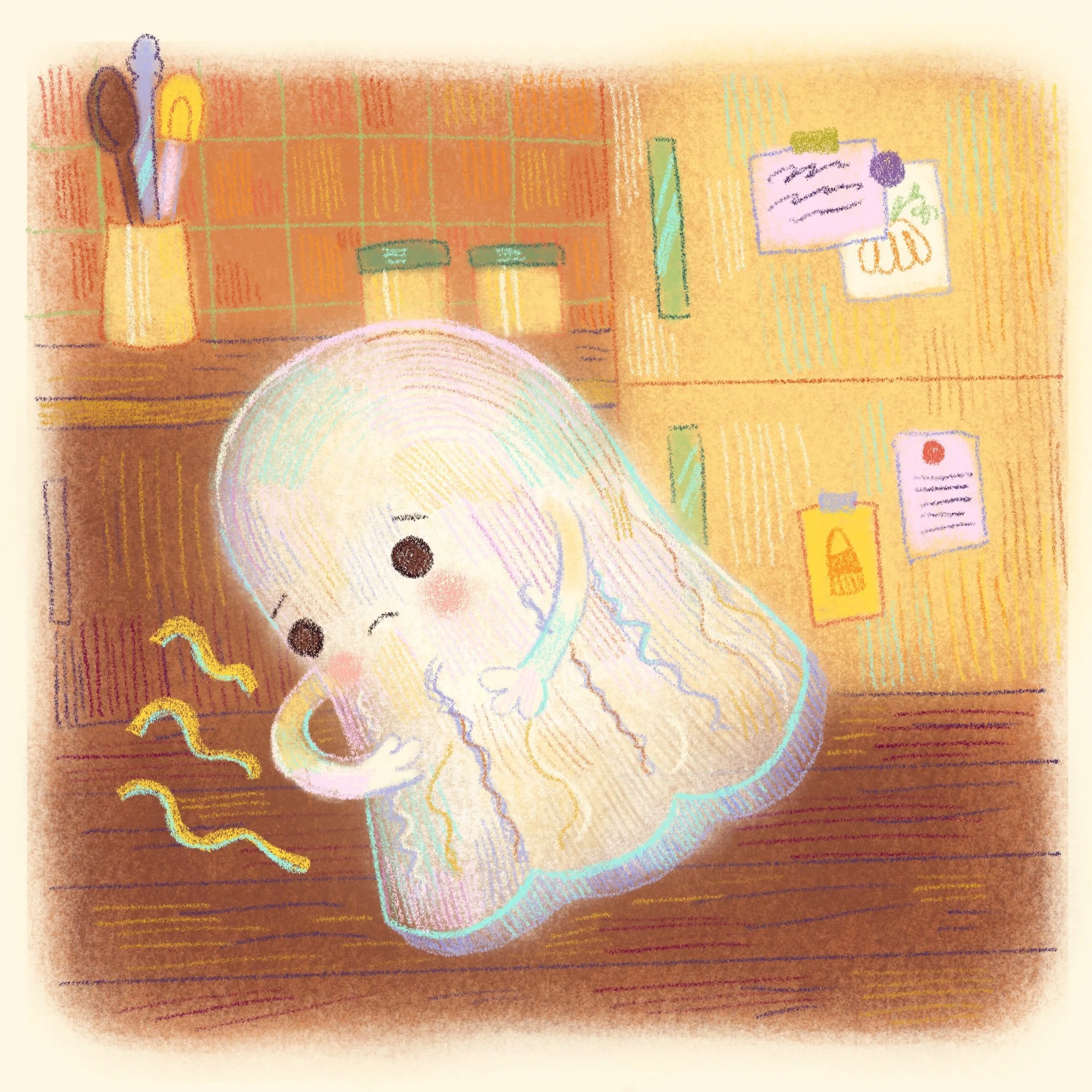Embrace The Spooky Season and Jump Into Self-Care
By: Vanessa
It’s that time of year when the assignments pile up, the temperatures drop, and students become zombie-like as midterms emerge. Student burnout is extremely common and can manifest itself through a variety of behaviours. Don’t neglect self-care!
There are a few key signs that you might be burned out. Can you relate to any of these?
1. Adding More to Your Plate / Overworking
It’s normal to balance assignments, part-time jobs, and extracurriculars outside of class. However, it can become an issue when every aspect of your life demands too much from you, and you still take on more. Say you have multiple projects that are due, a busy work schedule, and you still want to exercise, socialize, and lead a social club. A spider wouldn’t trap more flies than it would be able to reasonably eat.
Try not to take on more than you can handle—just to prove that you can. You know yourself best, so keep in mind just how many responsibilities you take on and know that it’s okay to say “No” sometimes. Customize your schedule to be sustainable for you to maintain in the long run, while still setting aside time for things you enjoy.
Don’t weigh down your spiderweb with too many things!
Untangle and organize your priorities to be more sustainable—you know yourself best!
2. Doing Everything Else
If you’ve ever felt the urge to clean your room, do laundry, and run errands when there’s an important assignment to do, you’re not alone. The big, scary project is something to avoid, while the chores you’ve been putting off are suddenly desirable. In video game terms, completing these side quests while ignoring the main quest will not further the main plot. Face your assignments head-on, and if you still need to get chores done, do them during your study breaks (just don’t get carried away).
3. Sleeping Through the Stress
When life gets overwhelming, the urge to just curl up like a cat and sleep the stress away is tempting. However, nothing will get done when you’re sleeping frequently and for long periods of time. If you find yourself sleeping too much, and think it’s a physical wellness concern, stop by the Health Centre on campus for a physical or speak to a life coach or professional to learn healthy coping tools for handling stress. Create a realistic timeline for yourself to reach your goals and prevent a situation where you have too much to do and not enough time to do it all. If you can’t shake that exhausted feeling, try to keep your sleep schedule consistent and create a healthy routine.
When life gets overwhelming, the urge to just curl up like a cat and sleep the stress away is tempting. But we have some tips to help! ⬅️
Set realistic goals, try to keep your sleep schedule consistent, and grab a coffee if you need it!
4. Disassociation / Not Feeling Motivated To Do Anything
Disconnecting from reality to cope with stressful situations is another way that burnout manifests itself. If you feel uninterested in activities that typically bring you joy, such as spending time with friends, that can also be a signal for you to check your mental health. It’s important to ground yourself and take deep breaths. Focus on your surroundings and try to stay in the present by paying close attention to the sounds and textures around you. By staying in the moment, you can feel more present when you’re with friends and experience it fully.
5. Stress-Eating or Forgetting to Eat
If you find yourself eating because you’re bored, rather than eating when you’re hungry, it’s possible that stressors in your life are causing you to stress eat, and food seems to disappear before your eyes. The opposite can also be true, where your roles and responsibilities cause so much stress that focusing on them causes you to forget to eat and you end up feeling like a ghost of yourself. Prioritize your wellness, especially when you’re feeling the effects of burnout.
If eating often slips your mind, you can set daily reminders on your phone to set aside time to prepare and eat meals. You can also try to consume healthy, filling meals and prepare pre-portioned snacks so you don’t eat excessively.
Don’t remember the last time you ate? Here’s some advice to stay on top of meals when you’re stressed.
Eating healthy, meal prep, and pre-portioned snacks all go hand-in-hand for fulfilling, intentional eating.
6. Not Being Able to Sleep
Trying to keep up with the flood of incoming assignments may leave you feeling physically and emotionally exhausted. If you find yourself wide awake when you feel tired and should be sleeping, it could be due to burnout. Experiencing too much stress and high levels of pressure can lead to not being able to sleep or never feeling truly rested. While you can try incorporating regular exercise into your daily routine, as well as practicing good sleep hygiene, speak to a medical professional if you think it’s more serious.
7. Misplaced Thoughts or Forgetfulness
Some people can mentally keep track of to-do lists, upcoming appointments, and assignment deadlines as they come. Being unable to focus your thoughts, or not being able to remember things that you’d usually never forget, can be a sign that you’re burned out. If you forget your keys or wallet, that’d be like a witch forgetting her broomstick. If your head feels foggy and you have less control over what you can remember, try writing down reminders for tasks as soon as you know about them. Making a to-do list or creating reminders for yourself can help jog your memory and stay on track with what needs to be done.
Rushing from one activity to the next can be stressful when your thoughts all seem to blur together. What can you do to keep track of it all? 🤔
To-do lists, reminders, and keeping an agenda are all tools that can help you look back on your upcoming priorities.
Trying to maintain a balance between academic and personal life is difficult, especially if you prioritize your academics over self-care. Make an effort to set aside time to do mental check-ins of your well-being every now and then, so you can feel and do your best in a sustainable manner for the future.












While music can be used as a therapeutic tool to restore, maintain, and improve mental, physical, and emotional health, it can also be a great tool to use when focusing on school. Check out Kaitlyn’s blog to discover 3 surprising benefits of listening to music while studying! 🧠🎶